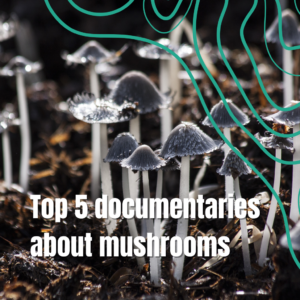

Psilocybin, a psychedelic compound found in certain mushrooms, is gaining attention in the world of sports for its potential effects on athletes. While it is not a banned substance in most sports, some athletes explore psilocybin for mental clarity, pain relief, and improved focus. Research and user reports suggest that psilocybin may help athletes enter a flow state, enhance mental resilience, and support recovery from injury or stress.

Despite its growing popularity, psilocybin’s role in sports remains controversial and not fully understood. Some athletes use it for personal growth or to manage anxiety and pain, but its effects vary widely and require careful consideration. The legal status also varies by location, making the decision to use it complex for athletes.
Interest in psilocybin is rising as many seek alternative ways to boost performance and mental health. Understanding how it might affect physical and psychological abilities is critical for both athletes and coaches who want to make informed choices.
Key Takeways
- Psilocybin may improve mental focus and flow during athletic performance.
- Its use supports mental health and pain management for some athletes.
- Legal and ethical concerns affect how and whether athletes use psilocybin.
Understanding Psilocybin

Psilocybin is a natural compound known for its psychedelic effects and is mainly found in certain types of magic mushrooms. Its influence on the brain and perception has drawn attention from both scientific research and sports communities. Understanding what psilocybin is, how it relates to other psychedelics, and its effects and safety is key to exploring its use in sports.
What Is Psilocybin?
Psilocybin is a chemical found in over 200 species of mushrooms, commonly called magic mushrooms. When ingested, psilocybin is converted into psilocin, which interacts with serotonin receptors in the brain. This interaction alters mood, perception, and cognition.
The effects usually begin 20 to 40 minutes after consumption and can last up to six hours. Psilocybin is not addictive and is considered to have low toxicity. It is currently being studied for its potential to treat depression, anxiety, and pain by helping reshape brain pathways.
Magic Mushrooms and Other Psychedelics
Magic mushrooms belong to a broader group called psychedelics, which also includes substances like LSD and mescaline. These compounds share similar effects but differ in strength, duration, and chemical structure.
Psychedelics are known for causing changes in perception, mood, and thought processes. Unlike stimulants or depressants, they primarily affect how the brain processes sensory information, leading to vivid visual or emotional experiences.
In sports, the interest in magic mushrooms is part of a wider exploration into how psychedelics might improve mental focus, creativity, and recovery. However, psilocybin is not banned by major sports agencies like WADA but might be restricted under certain sport-specific rules.
Psychedelic Effects and Safety
The main psychedelic effects of psilocybin include altered sensory perception, enhanced emotional response, and changes in time perception. Users may experience visual patterns, heightened colors, and shifts in emotion, which can be positive or challenging.
Safety concerns mainly involve “bad trips,” which are adverse psychological reactions causing anxiety or confusion. These risks are lower with controlled, guided use. Physically, psilocybin has a low risk of toxicity or addiction.
Because of these effects, careful attention is needed if athletes consider its use. Research into microdosing—taking very small, sub-hallucinogenic amounts—is ongoing to understand potential benefits for focus and cognitive function without strong psychedelic experiences.
For more details on the role of psilocybin in sports and its effects, see information on magic mushrooms and psychedelics and their prohibited status in sports.
Psilocybin and Athletic Performance

Psilocybin use among athletes has gained attention for its effects on mental openness, focus, and recovery. It is not banned by most sports organizations, making it a subject of growing interest. The impact on cognitive function and healing, especially after injuries like concussions, is being studied carefully.
Potential Benefits for Athletes
Psilocybin may help athletes by increasing mental flexibility and reducing anxiety. This can allow athletes to see challenges differently and improve motivation. Some athletes report better creativity in problem-solving and quicker adaptation during training or competition.
Research shows microdosing psilocybin or similar psychedelics can improve cognitive functions such as focus, decision-making, and mood regulation. These effects are believed to support performance, especially in sports requiring mental sharpness like climbing or skiing.
However, the effects vary between individuals. More scientific studies are needed to confirm lasting benefits and understand the right doses for athletes.
Effects on Recovery and Focus
Psilocybin may aid recovery by lowering stress and improving sleep quality. It has also been linked to decreased inflammation, which might help with healing after injuries like concussions.
The substance’s ability to help athletes “reset” their mental state can increase focus during practice. By reducing mental clutter and promoting mindfulness, athletes might find it easier to concentrate on their techniques and goals.
Some athletes use psilocybin as part of mental recovery routines, combining it with therapy to handle trauma or burnout related to intense sports training.
Risk Factors and Considerations
Psilocybin use carries risks, such as unpredictable psychological effects including anxiety or confusion. These can affect performance negatively if not managed well. Athletes with mental health conditions should be especially cautious.
Another concern is legality and regulation. While psilocybin is not banned by WADA, some sports or regions may have restrictions. Athletes must be aware of these rules to avoid penalties.
Proper dosage and controlled environments are important to minimize risks. Without expert guidance, the use of psilocybin could lead to harmful experiences or impairments during competition or training.
Mental Health Implications in Sport
Psilocybin has shown potential in helping athletes manage several mental health challenges. These include treating anxiety, depression, post-traumatic stress disorder (PTSD), and aiding recovery from addiction. Its use in sports focuses on improving mental well-being and easing symptoms that affect performance and quality of life.
Addressing Anxiety and Depression
Athletes often face anxiety and depression due to pressure, injuries, or career uncertainty. Psilocybin has been studied for its ability to reduce symptoms in these conditions by promoting emotional insight and reducing negative thought patterns.
Clinical trials suggest psilocybin can produce rapid mood improvement and lasting changes after only a few sessions. This may help athletes break cycles of anxiety or depression that hinder their training and performance.
Care must be taken, as responses can vary. Supportive therapy alongside psilocybin is key to maximizing benefits and minimizing risks.
Treatment of Post-Traumatic Stress Disorder
PTSD is common in athletes who experience concussions or traumatic events. Psilocybin-assisted therapy is being explored to help reduce PTSD symptoms by enabling new perspectives on trauma and easing emotional pain.
This approach may help athletes process trauma more effectively and decrease symptoms like hypervigilance and flashbacks. It offers a different pathway from traditional medications, focusing on psychological healing.
Studies note that therapy combined with psilocybin encourages emotional breakthroughs, which may accelerate recovery beyond standard treatments.
Addiction and Substance Recovery
Substance use and addiction can be serious problems in sports, sometimes linked to pain management or stress coping. Psilocybin shows promise in supporting recovery by helping individuals understand the root causes of their addiction.
Research indicates that psilocybin therapy can reduce cravings and support long-term abstinence for various addictions. It may also improve mental health conditions that contribute to substance use.
In sports, this could mean better outcomes for athletes struggling with addictions, improving both their physical health and mental wellness.
More details on these topics are discussed in studies on psychedelics and athlete mental health like the one at PMC and research on psychedelics in sports practice at PubMed.
Media Coverage and Public Perception
Media coverage has shaped how people view psilocybin, especially in sports. Some outlets highlight its potential benefits, while others focus on risks or ethical debates. Public opinion often mirrors this mixed media portrayal, showing both curiosity and caution toward psilocybin use by athletes.
Psylocibin is still a controversial subject in society, and it has a long way to be fully understood but we hope that with this article you can have your own criteria. Remember to visit us if you are at Pasadena, California. Stay woke!


